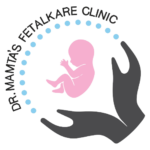The first trimester of pregnancy — the initial 12 to 14 weeks — is a critical window of time where your baby’s foundational development takes place. During this period, important organs like the brain, heart, and spine begin to form, making early screening essential to monitor growth and identify potential risks.
First Trimester Screening (FTS) is a non-invasive, highly recommended combination of blood tests and ultrasound examinations aimed at detecting early signs of chromosomal abnormalities and other developmental issues in the fetus. When performed timely and accurately, this screening helps expectant parents make informed decisions and plan a safe and healthy pregnancy journey.
What Is First Trimester Screening?
First Trimester Screening is typically performed between 11 and 14 weeks of pregnancy. It includes:
- Nuchal Translucency (NT) Scan: A specialized ultrasound that measures the fluid-filled space at the back of the baby’s neck. Increased thickness can be associated with conditions like Down syndrome, trisomy 18, or congenital heart defects.
- Dual Marker Test (Blood Test): Measures levels of hCG (human chorionic gonadotropin) and PAPP-A (pregnancy-associated plasma protein A) in the mother’s blood. Abnormal levels may signal chromosomal abnormalities.
These two tests, when interpreted together, can give an accurate risk assessment for common genetic disorders.
Why Is It Important?
- Early Detection of Chromosomal Abnormalities
Conditions such as Down syndrome (Trisomy 21), Edwards syndrome (Trisomy 18), and Patau syndrome (Trisomy 13) can be detected with high sensitivity. Identifying risks early enables further confirmatory tests such as NIPT, CVS, or amniocentesis if needed. - Better Planning and Decision-Making
Early screening empowers parents with critical information. Whether it’s about managing a high-risk pregnancy or preparing for a child with special needs, this information allows time to understand, prepare, and seek expert medical guidance. - Monitoring Baby’s Development
The NT scan also helps identify structural issues such as heart defects or neural tube anomalies. Detecting these early on means doctors can plan for more advanced diagnostics and treatments during pregnancy. - Maternal Health Insights
First Trimester Screening may also reveal risks associated with preeclampsia, gestational diabetes, and preterm birth, giving healthcare providers time to introduce preventive strategies early on.
Who Should Get First Trimester Screening?
First Trimester Screening is recommended for all pregnant women, regardless of age or medical history. However, it becomes especially important for women:
- Above 35 years of age
- With a history of genetic disorders
- Who have had previous miscarriages or birth complications
- With chronic medical conditions like diabetes or hypertension
Expert Guidance Matters
For the most accurate diagnosis and personalized pregnancy care, it’s important to consult a qualified fetal medicine expert. Dr. Mamta Phogat, widely recognized as the best Maternal Fetal Medicine Specialist in Faridabad, offers comprehensive care and cutting-edge diagnostics to ensure both mother and baby are well-supported from the very beginning. With her expertise and compassionate approach, you can navigate your pregnancy with confidence and clarity.
Early care can lead to lifelong benefits, take the first step with the right screening and the right specialist.

